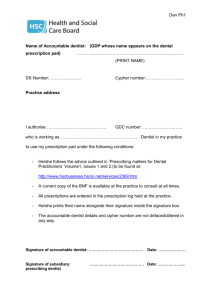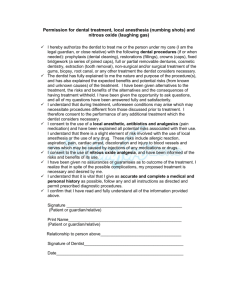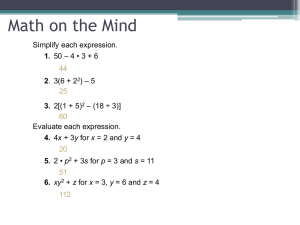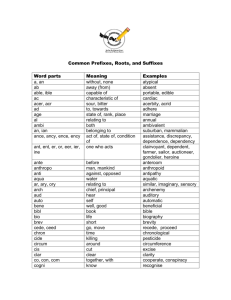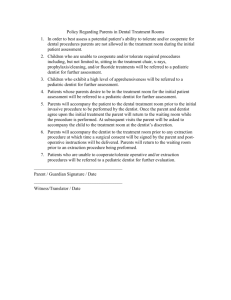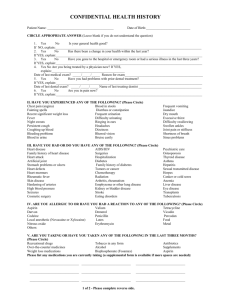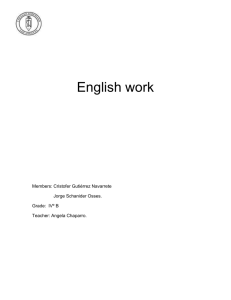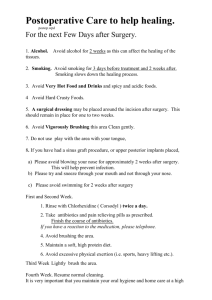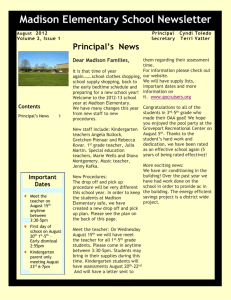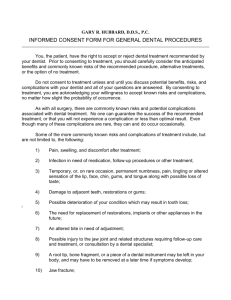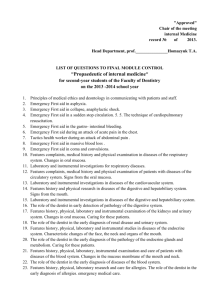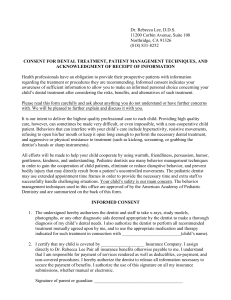Verb_tenses_key
advertisement
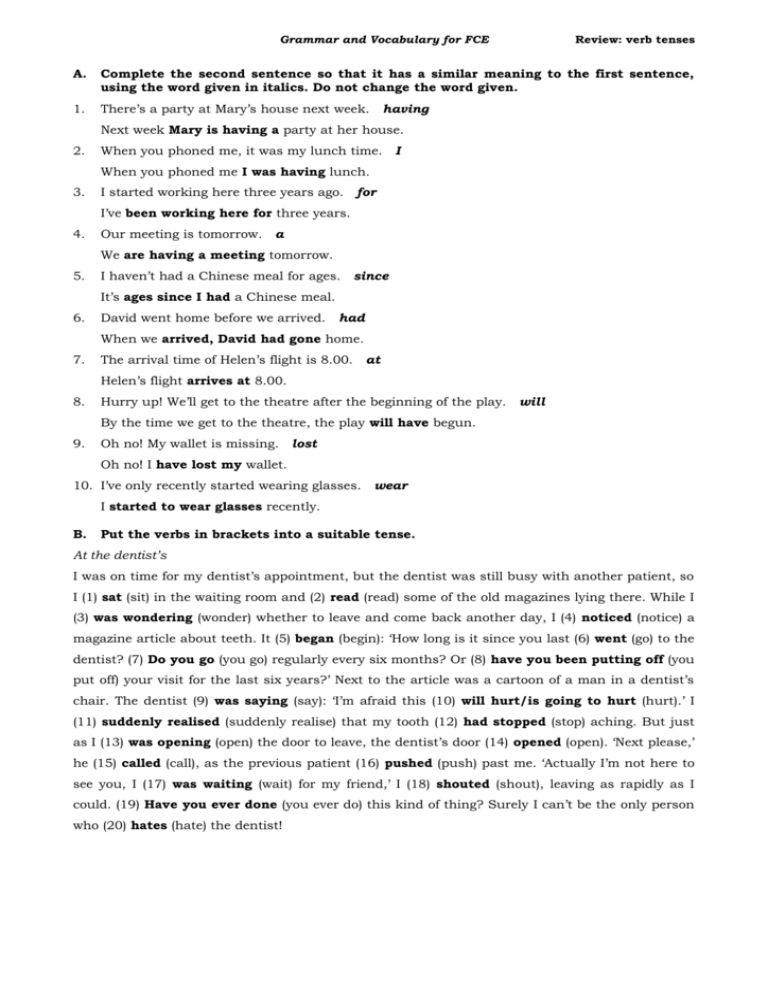
Grammar and Vocabulary for FCE Review: verb tenses A. Complete the second sentence so that it has a similar meaning to the first sentence, using the word given in italics. Do not change the word given. 1. There’s a party at Mary’s house next week. having Next week Mary is having a party at her house. 2. When you phoned me, it was my lunch time. I When you phoned me I was having lunch. 3. I started working here three years ago. for I’ve been working here for three years. 4. Our meeting is tomorrow. a We are having a meeting tomorrow. 5. I haven’t had a Chinese meal for ages. since It’s ages since I had a Chinese meal. 6. David went home before we arrived. had When we arrived, David had gone home. 7. The arrival time of Helen’s flight is 8.00. at Helen’s flight arrives at 8.00. 8. Hurry up! We’ll get to the theatre after the beginning of the play. will By the time we get to the theatre, the play will have begun. 9. Oh no! My wallet is missing. lost Oh no! I have lost my wallet. 10. I’ve only recently started wearing glasses. wear I started to wear glasses recently. B. Put the verbs in brackets into a suitable tense. At the dentist’s I was on time for my dentist’s appointment, but the dentist was still busy with another patient, so I (1) sat (sit) in the waiting room and (2) read (read) some of the old magazines lying there. While I (3) was wondering (wonder) whether to leave and come back another day, I (4) noticed (notice) a magazine article about teeth. It (5) began (begin): ‘How long is it since you last (6) went (go) to the dentist? (7) Do you go (you go) regularly every six months? Or (8) have you been putting off (you put off) your visit for the last six years?’ Next to the article was a cartoon of a man in a dentist’s chair. The dentist (9) was saying (say): ‘I’m afraid this (10) will hurt/is going to hurt (hurt).’ I (11) suddenly realised (suddenly realise) that my tooth (12) had stopped (stop) aching. But just as I (13) was opening (open) the door to leave, the dentist’s door (14) opened (open). ‘Next please,’ he (15) called (call), as the previous patient (16) pushed (push) past me. ‘Actually I’m not here to see you, I (17) was waiting (wait) for my friend,’ I (18) shouted (shout), leaving as rapidly as I could. (19) Have you ever done (you ever do) this kind of thing? Surely I can’t be the only person who (20) hates (hate) the dentist! Grammar and Vocabulary for FCE Review: verb tenses C. Complete the second sentence so that it has a similar meaning to the first sentence, using the word given in italics. Do not change the word given. 1. Jack left the office before I arrived there. already When I arrived at the office Jack had already left. 2. Do you know how to drive this kind of car? ever Have you ever driven this kind of car before? 3. This is my first visit to Scotland. I This is the first time I have been to Scotland. 4. During dinner, the phone rang. I While I was having/eating dinner the phone rang. 5. Do you have any plans for Saturday evening? doing What are you doing on Saturday evening? 6. I started this job five years ago. been I have been doing this job for five years. 7. Is this car yours? you Do you own this car? 8. Look at those black clouds! There’s rain on the way! to Look at those black clouds! It’s going to rain. 9. Our twenty-fifth wedding anniversary is at the end of next year. for By the end of next year we will have been married for twenty five years. 10. I haven’t been to the cinema for two months. time The last time I went to the cinema was two months ago. D. Put the verbs in brackets into a suitable tense. The latest news Dear Linda, I’m sorry I (1) haven’t written (write) to you for so long, but I (2) have been (be) very busy lately. All last month I (3) had (have) exams, and I (4) haven’t done(do) anything else but study for ages. Anyway, I (5) have stopped (stop) studying now, and I (6) am waiting (wait) for my exam results. As you can see from the letter, I (7) have changed (change) my address and (8) live (live) in Croydon now. I (9) decided (decide) that I wanted a change from central London because it (10) has become (become) so expensive. A friend of mine (11) told (tell) me about this flat, and I (12) moved (move) here about two months ago. When you (13) come (come) to London this summer, please visit me. I (14) am staying (stay) here until the middle of August. Then I (15) am going (go) on holiday to Scotland. Please write soon, Margaret.
